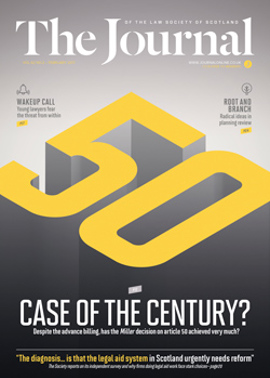Challenging assumptions

Our tale concerns a dispute about the interpretation and application of a limitation clause in a commercial contract. There was no factual dispute at all. In a large construction claim arising out of building a public facility in an overseas jurisdiction, the parties had agreed that the claim was so high (multiples of tens of millions) that whatever the decision on the matter of interpretation, it was unnecessary to explore the figures in detail. Similarly, primary liability was not in issue. Subject to a couple of further interpretation variables, if the clause was deemed to provide for A result, then x amount was due; if B, then y would be payable. It was that simple.
It still took several hours to explore the risks and opportunity costs, testing the realism of some key arguments, and deploying “Mr Justice Not Very Bright” in each party’s private room. For one reason or another, this notional judge tends to ask awkward questions, as if he does not understand the points being made. He proves to be a useful tool on occasion, sometimes dropping hints about how he, as a judge, might view things in a court. He performs the same role privately for all parties, but in different ways of course. And he always qualifies his comments with the observation that he does not have anything like complete knowledge and that parties and their lawyers are completely free to disregard his remarks.
The client decision-makers were also deeply aware of the cost of running a case in another jurisdiction, of the time it would take to obtain a judgment (whichever way that fell), of the concerns further up their decision-making food tree about ongoing relations between the parties at a business level (they had several other contracts together), and of the sheer toil of using up management time if they had to start dissecting the figures.
Incidentally, this mediator has a penchant for inviting the clients and lawyers to join him for a quick pastry, bacon roll or “breakfast” at an early stage of the day. This suggestion does not always meet with universal approval, but here it worked a treat. In this session over food and coffee, the principal decision-makers soon discovered that they shared a common bond from the past in their industry, and this gave them much to discuss throughout the day. It also generated the goodwill to enable them to meet and complete the deal when the lawyers needed that extra commercial input later in the day.
It was in their corporate interests to reach an agreement, and they did, on the back of the risk analyses which the day had encouraged and empowered them to conduct – and of the other commercial factors of which they, as business people, were acutely aware.
This may have been a big claim financially, but many of the same considerations and assumptions here apply to so many cases, large and small.
Another story next month!
In this issue
- Miller, Brexit and BreUK-up
- Power to the people?
- Prerogatives, Parliament and the constitution: plus ça change?
- Decisions in high places
- Reading for pleasure
- Journal magazine index 2016
- Opinion: Callum Sinclair
- Book reviews
- Profile
- President's column
- Have you heard of ScotLIS?
- People on the move
- Article 50: the final say
- Where courts fear to tread
- "Wake up": how young lawyers see the future
- How healthy is our legal aid system?
- Challenging assumptions
- Planning to deliver
- Contact and the fear factor
- And the bill goes to...?
- Pakistan to join Child Abduction Convention
- Dress to impress?
- Handcuffing of prisoners and article 3
- Turning up the heat on workplace change
- Scottish Solicitors' Discipline Tribunal
- Not just for the green welly brigade
- Five by five
- Law reform roundup
- Relief over pensions and bankruptcy ruling
- Helpline plus
- Spill the beans on legal aid fraud
- The art of bringing the good news
- Cybercrime: how are you protected?
- Ask Ash
- One year rule becomes three
- From the Brussels office






